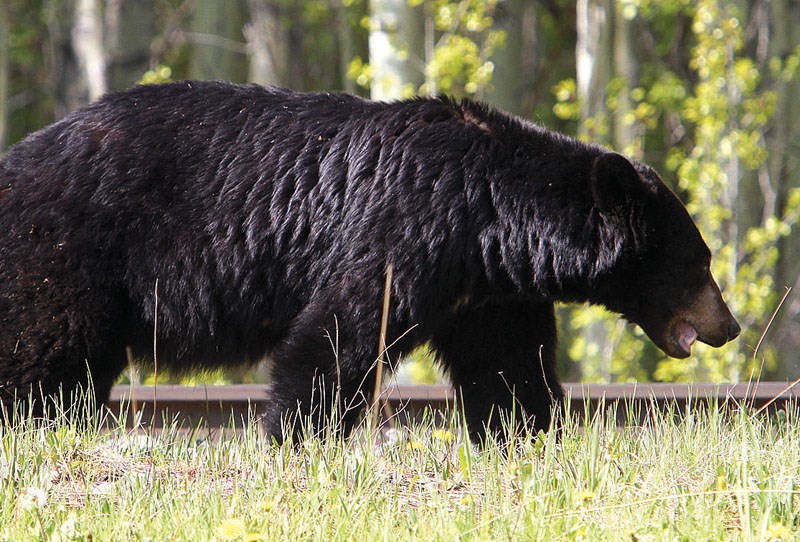Lots of rain in June, followed by three months of steady sun and heat, and the bears couldn't be be happier.
The woods around Prince George are well-stocked with food for bruins and that's led to a significant reduction in bear encounters with people and their property. Bears are getting close to the stage where they will settle into their dens for winter and conservation officers are optimistic they won't have to deal with many problem bears before the snow flies.
"From a Prince George perspective, it's a very good year compared to the last four or five years and our bear complaints are way down," said B.C. Conservation Officer Service Insp. Doug Forsdick.
"We had a moist June, so lots of berries grew throughout the summer and there were lots of natural food sources for the bears and still lots out there for them this fall. I think a lot of the public is catching on that if you remove those attractants you'll lessen the bear complaints."
It is the responsibility of home occupants, especially those who live near forested areas, to pick the fruit off their trees to keep bears away. People are also advised not to put garbage bins out on the street overnight and to keep compost bins covered to minimize the scent that attracts bears.
Forsdyck said conservation officers have an new enforcement tool -- the dangerous wildlife protection order -- which gives them the right to issue a $345 fine for residents who fail to comply with orders to remove bear attractants from their yards.
"If they don't comply with that and it's a continuing thing we'll send them to court as well," said Forsdick. "We've picked out certain neighbourhoods that are problems. People don't seem to get it. They leave their garbage out and it seems to be a systemic problem."
Over the past five years in the province, an average of 600 black bears were destroyed each year with 93 relocated.
"Every situation is different and what it depends on primarily is if that bear is garbage-conditioned or human habituated," said Forsdick. "If that bear is conditioned to that food source, then the chances of relocating that bear successfully are minimal. If that bear has no fear of humans, that's a really difficult thing to instill back into them. You have to do what's right from a public safety point of view."
According to Northern Bear Awareness, there were 270 bears within a 1,000-square-kilometre area in the Prince George/Omenica region, with an average of 20 and 30 bears living within city limits. In 2010, a dry year with a poor berry crop, 88 bears were destroyed in the region. In 2011, 12 black bears had to be shot, and so far this year, one grizzly and eight black bears have been put down. There have been 502 bear sightings reported to the region's conservation officers this year, up slightly from 480 in 2011.
"It does seem people are more knowledgeable about [the bear awareness program] but there's a lot of room for improvement," said Laura Bass, the Northern Bear Awareness Society/Bear Aware community co-ordinator. "It seems to be the most bear sightings and bear encounters are in the Hart and College Heights areas."
With help from the Northern Bear Awareness, Prince George is one of the 20 communities in B.C. trying to achieve Bear Smart status, a title shared by Kamloops, Whistler, Squamish and Lions Bay. In March, the province designated $225,000 for the BC Conservation Foundation to promote the Bear Aware program.
Northern Bear Awareness continues to promote its fruit exchange program and will accept fruit from homeowners or if necessary will send volunteers to pick the trees. That fruit will be donated to a wildlife shelter in Smithers. Call 778-281-BEAR (2327)
Now that hunting season is in full swing, Forsdick reminds hunters to report any illegal hunting activity such as animals being shot out of season or other violations of the Wildlife Act. He said there have been at least four incidents in which hunters mistakenly shot five-point elk, thinking they had six points showing on their antlers, and have reported their mistakes to conservation officers on the Report All Poachers or Polluters hotline, 1-877-952-RAPP(7277).
In all those cases, the hunters were given warnings and the animal carcasses were seized. Forsdick said the meat was given to people living on social assistance or to people with medical conditions that prevent them from eating beef.



